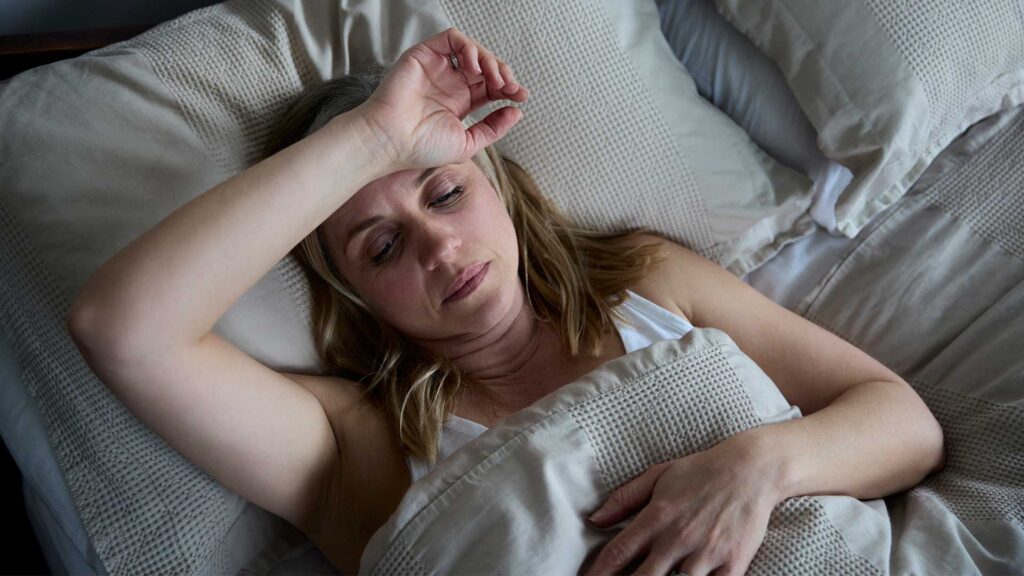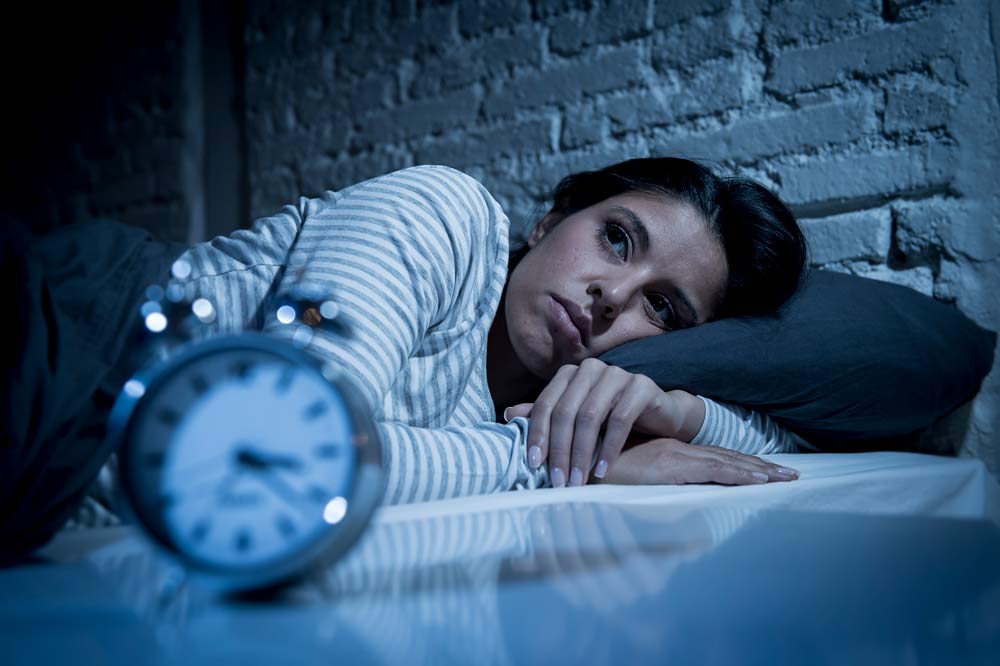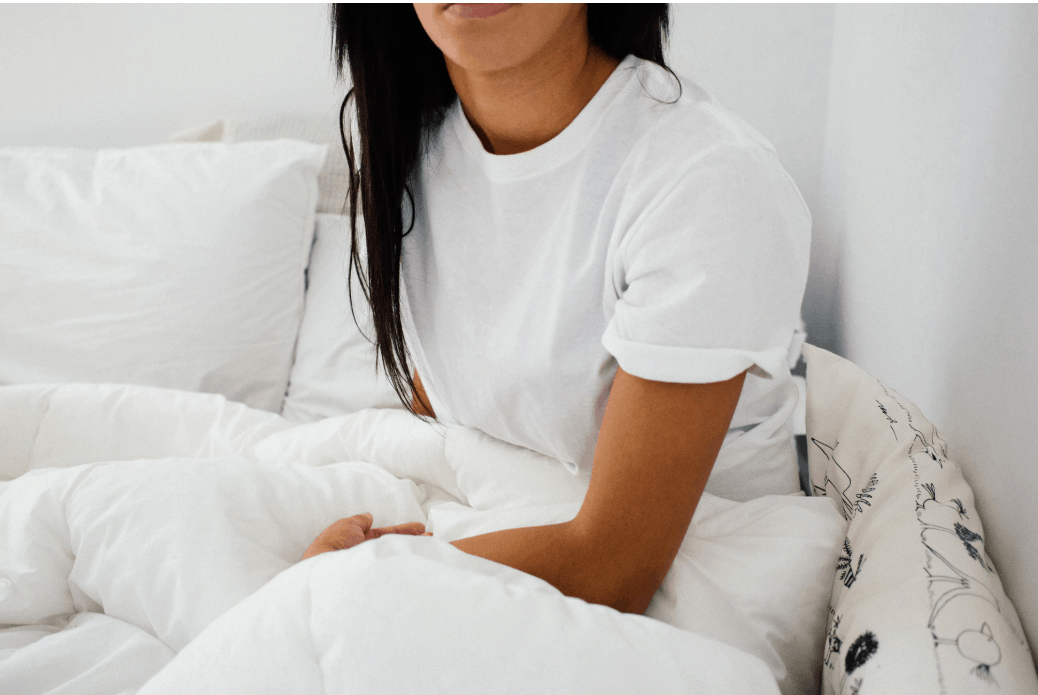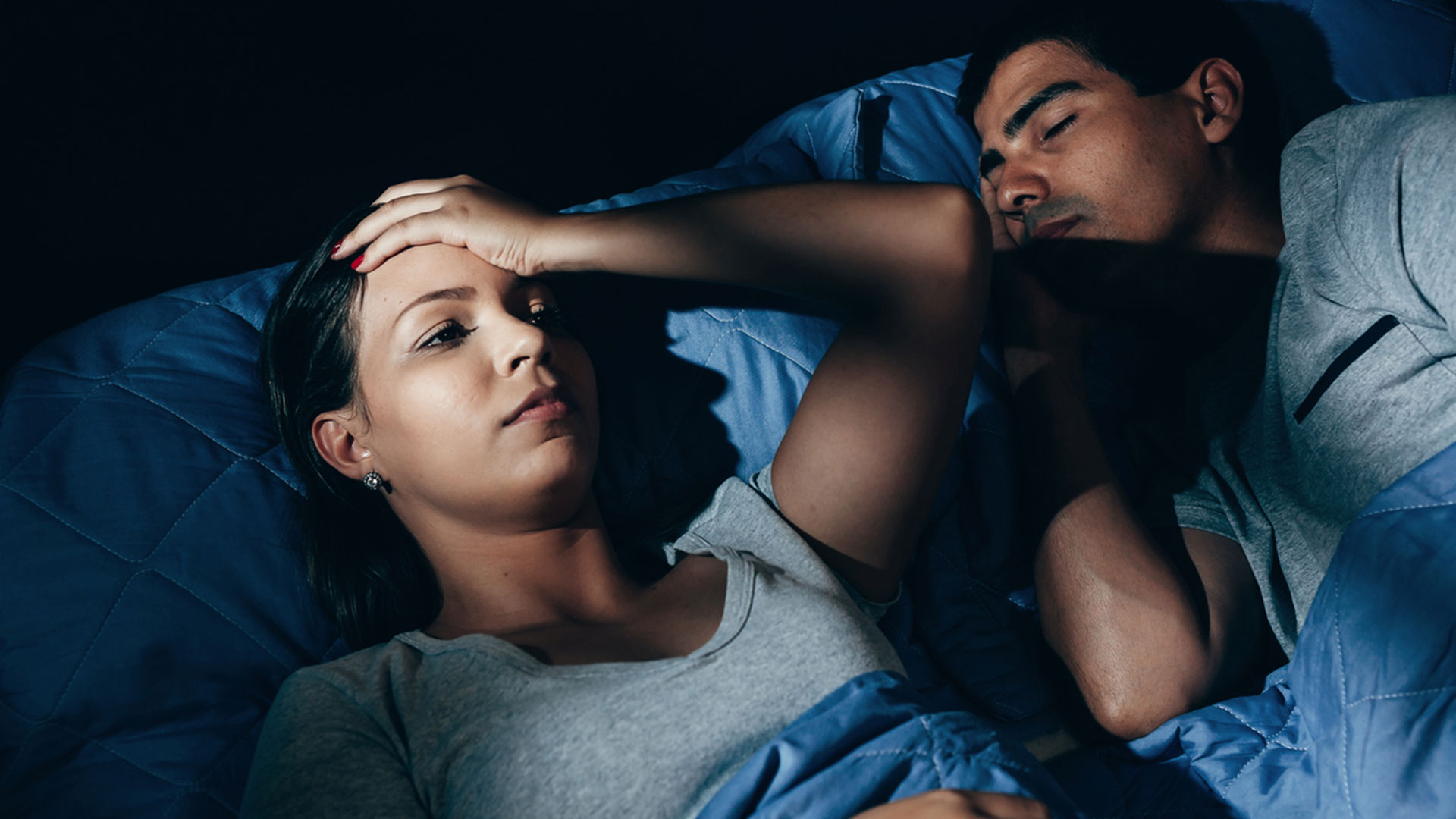
Women experiencing insomnia during menopause (and perimenopause) is nothing new, but a recent survey finds there’s a certain time at night when many women wake up.
According to the survey, the most common time that women with menopausal insomnia wake up is 3:29 a.m (1). The research was released for World Menopause Day on Oct. 18.
The research conducted by a private company found that three quarters of women in menopause and perimenopause are dealing with insomnia. Of those surveyed, 69 percent said the nighttime waking was having a negative impact on their emotional wellbeing.
What Is Menopausal Insomnia?
While it’s unclear if the 3:29 a.m. wake time is popular in other groups of women not surveyed, the medical community does know a bit about menopausal insomnia.
Menopausal insomnia can occur around the time of menopause for a variety of reasons, Fiona C. Baker, PhD, a sleep researcher with SRI International in California, said. Hot flashes and night sweats can disturb sleep. Women can also have mood changes like depression. Life stresses may also play a role.
“Insomnia symptoms are very common in perimenopausal women, being present in about 40 percent to 50 percent of women, and these symptoms persist as women enter menopause,” Baker said.
About 26 percent of middle-aged women meet the criteria to be diagnosed for an insomnia disorder.
“The most common complaint is waking up during the night and having difficulty going back to sleep,” she added.
“The primary trigger for menopausal insomnia is the fluctuation and eventual decline in the levels of female sex hormones, particularly estrogen and progesterone,” said Shoma Datta-Thomas, MD, who is the head of wellness for Modern Age, and located in New York City.
“These hormonal changes can affect the body’s internal temperature regulation and disrupt the circadian rhythm, making it challenging to not only fall asleep, but stay asleep,” she said.
Hormonal fluctuations can also lead to mood swings, anxiety, and depression, all of which can contribute to insomnia. The emotional distress and stress that many women experience throughout menopause can make it more difficult to relax and fall asleep, Datta-Thomas noted.
Hot flashes can occur for about seven years. If they’re disrupting your sleep specifically, expect the sleep disturbance to continue that long and perhaps longer, Baker said.
The good news is that insomnia symptoms taper off after menopause and there are some improvements. But they don’t completely go away, Baker said.
Based on findings from the National Institutes of Health, perimenopausal women exhibit a higher prevalence of insomnia symptoms compared to the general adult population, Datta-Thomas pointed out.
“Interestingly, insomnia symptoms tend to become more pronounced during the later stages of perimenopause in contrast to the early perimenopausal period,” Datta-Thomas said. “As a result, it is imperative for healthcare providers to implement screening procedures for insomnia symptoms in perimenopausal women.”
What is Perimenopause?
Perimenopause is the long transitional phase leading up to menopause, symptoms include irregular periods and hot flashes caused by hormonal fluctuations. It usually begins in a woman’s 40s and lasts several years before menopause occurs.
Assessing Your Menopausal Insomnia Risk
Doctors aren’t sure how to tell who will develop menopausal insomnia and who won’t, but there are some important risk factors. If you have a history of insomnia, you may be more prone to menopausal insomnia.
“That’s why it is important to address insomnia early on and speak to a healthcare provider about options for treating insomnia to establish healthy sleep—it’s easier to fix the problem when it is in the early stages,” Baker said.
Treatments include medications and cognitive behavioral therapy.
It’s important to get an accurate diagnosis, Baker emphasized. That’s because sleep issues can happen with a number of medical issues. (One of them, sleep apnea, is also common after menopause, she said.)
Try to prioritize sleep hygiene if you have trouble sleeping, or find yourself waking up at night, Datta-Thomas said.
A few pro sleep tips: Avoid daytime naps, stay of screens at night, and avoid caffeine and meals two to three hours before bed. Keep the room cool and dim the lights gradually before bedtime, she added.

Types of Insomnia — Causes and Treatments

Are You a Woman With Insomnia? There’s a Book For That

Can This Swiss Brand’s Science-Backed Sleepwear Really Cure Everything From Insomnia to Hot Flashes?




























